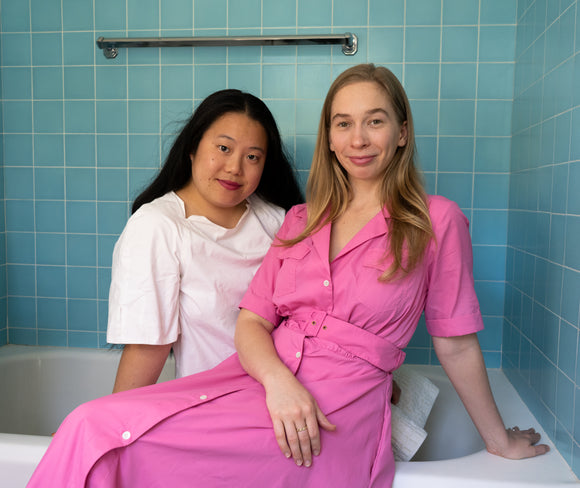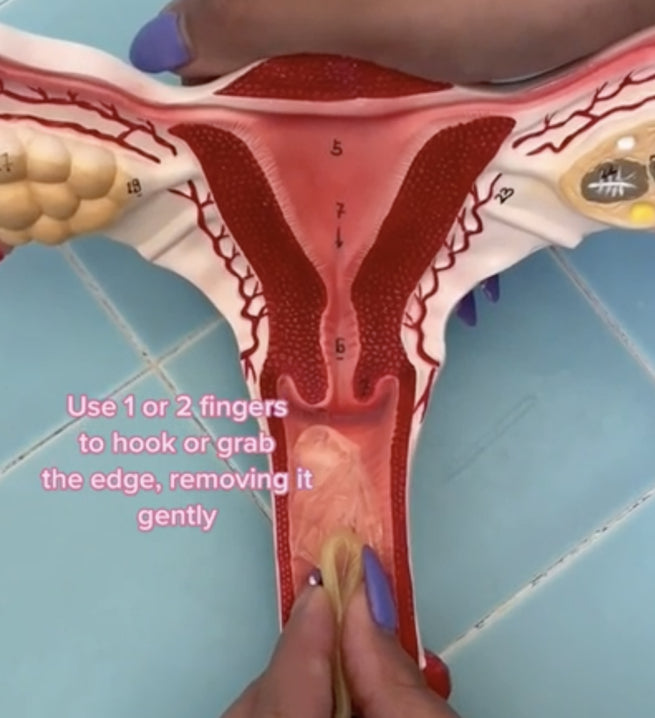
The Microbiome in Love
Shea Sweeney
I love your bacteria.
So, you’ve taken a lover. You begin spending copious amounts of time together and wondering what the hell you’re doing. One night a week turns into three, into four. Perhaps borrowing an article of clothing. A pair of socks. Eating off the same tube of raw cookie dough (you’re wild sometimes). Drinking out of the same water glass. And maybe one time you forget your toothbrush…and you share…..No, no, you resist. It’s a toothpaste on the finger type night. But anyway, this goes on, you decide you’re like, in love? And maybe you even move in together (gasp). Some time later you wake up, your now partner rolls over to cuddle and you notice something….interesting. You always sleep to the right of them and you realize that their left and right armpits smell…different from each other. And not only that, but their right armpit - the one that you sleep next to - actually kinda smells like….you.
No, this is not an indie horror about body odor premiering at the Sundance Film Festival. It's a real phenomenon. It turns out we do actually colonize our lovers’ lives in more ways than just leaving a toothbrush or being the hot new addition to an awkward family gathering. The people with whom we share our most intimate physical relationships can actually begin to reflect us on a microbiological level and visa versa.
Our bodies are literally covered in bacteria and microorganisms that make up each of our personal microbiomes. A 2017 study concluded that cohabiting couples altered one another’s skin microbiomes. “After testing the samples,” Medical News Today reported, “The researchers noted that microbes had been swapped between couples to a significant enough extent that computer algorithms were able to link a person to their partner with an accuracy of 86 percent.” Well, damn.
The story I told at the beginning is partially biographical: a friend of mine has managed to accidentally alter the scent of her partner's armpit on the side that she sleeps on, which now smells like her. We went back and forth as to whether this was actually possible. And, turns out, it is. According to New Scientist, it is actually so possible that one can perform an armpit bacteria “transplant” of sorts in order to aid those who suffer from bad B.O. It seems that if given the proper conditions, bacteria from one body will gladly proliferate on another.
I did wonder how this all figured into the vaginal microbiome. I’d heard a number of anecdotal accounts of people breaking up with sexual partners partially or entirely because of microbiome incompatibility issues.
“I had everything in the book,” one source said of a past relationship, “BV, UTIs, he gave me HPV. And I also, at the same time, was taking every supplement and probiotic in the book. I was doing all of the things, and I just could not combat these problems. And then, you know what, we broke up. And now I’m dating someone new. No issues. Not a single problem.”
We discussed how isolating it can be for people with vaginas to deal with chronic issues when the burden of sexual health is often placed squarely on our backs. “I feel like men just have no idea that women go through this. I was dating him for quite a while. A year. Meanwhile just going through dramatic things. I was having to go to the gyno, use antibiotic cream, and take oral antibiotics. He wasn’t going through anything that I was going through."
She said something else that really stood out to me, in a way it's sort of the whole thesis. “My body physically rejected him, but I still thought that while we were dating our sexual attraction would be enough to keep us going. And I don’t think that’s necessarily true. I wish I’d listened to the signs from my body a little bit more.” A lot of the time our bodies and our subconscious know things before we allow ourselves to consciously accept them. There seems to be a lot of power in learning how to listen to that.
So, as a person who is also BV-prone, am I going to stop dating someone every time I get it? For me it definitely seems to correlate with sex, however it's too inconsistent to successfully track. I can’t be certain about what’s going on. Trying to find and address its origins so it doesn’t happen again feels like trying to find Moby-Dick. Endless and existential.
To be honest I started to feel a little adrift on the sea of vaginal health while writing this article. Until, suddenly, I looked down into the water and there it was; a study about the bacteria of the literal (Moby) dick.
This 2020 study was a deep dive into whether the bacteria of the penile microbiome directly correlates with bacterial vaginosis. And guess what…..it does! Ding! Ding! Ding! “The results show that men’s microbiota has a role in BV onset and that BV-related bacteria present in men’s penile microbiome can be used to predict with high accuracy BV incidence in their female partner.” The researchers were quick to note that this revelatory outcome does not mean that any one party should be blamed for BV, but rather that the treatment of vaginal conditions should be approached more holistically. Perhaps it's not only women who should seek treatment for BV-causing bacteria, and maybe one day there will be treatment options for male-bodied people so they can support their partners’ health. “I would like for clinicians, researchers, and the public to be inclusive of male sex partners in their efforts to improve women’s reproductive health, “A researcher says, “Not to place directionality or blame on one partner or another, but to increase the options and opportunity for improved reproductive health, and hopefully reduce stigma from BV."
I, for one, would love to live in a world where a partner and I take full co-accountability for our shared microbiome. Sexual partners are co-captains on the ship of vaginal health and in this world where our bodies are connected in so many ways we can’t even see, it’s important to support each other’s microbiome as much as we possibly can.
The Cheeky The Cheeky The Cheeky The Cheeky
Recommended For You
-

Why Does My Vagina Have a Scent?
Vaginas have slightly different scents based on your own unique vaginal bacteria and biome....Read more -

Why Do I Have Low Sex Drive?
The cause for low sex drive can sometimes be hard to pinpoint. Often it’s...Read more -

Why Is My Vulva Itchy?
An itchy vulva could be caused by anything from irritating underwear or soap to...Read more -

Does My Vagina Fill With Water When I’m Swimming?
Your vagina does not fill with water when you’re swimming. The vagina isn’t just...Read more -

Cheeky Weekly #1
Welcome to The Cheeky Weekly! This is our space for sharing interesting reads, views and...Read more -

Rachel Moranis of Stardust
It’s happening in real time. Menstrual health and wellness is far less taboo than...Read more -

This Vagina Smells Like My Candle
In 2020 Gwyneth Paltrow’s infamous wellness company, Goop, debuted a $75 candle with the inscription, This Smells Like My...Read more -

Best Underwear for Your Vagina
Cotton truly is the best underwear material for your vagina. The key is that...Read more -

How to Have Great Sex and Avoid UTIS
You know what makes sex really great? Not getting a UTI afterward. And, here’s...Read more -

The Official Cheeky Playlist
For us, everyday vaginal health is as much a conversation as it is a...Read more -

Are Vaginas Different Sizes?
The average length of a vaginal canal is around 3.5 inches, though they come...Read more -

-
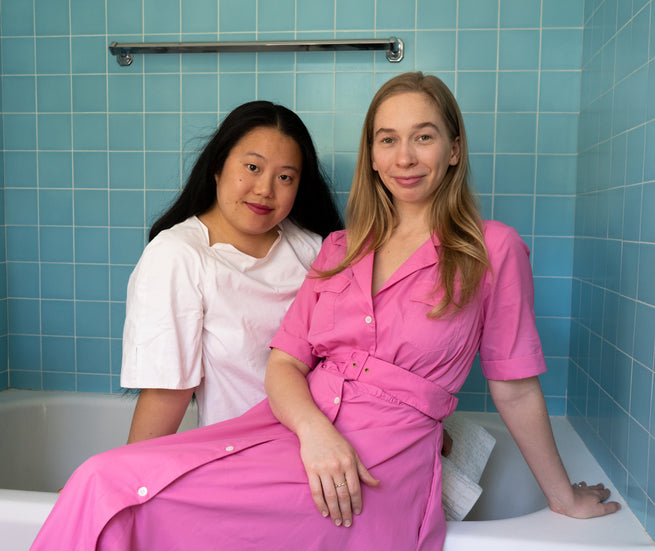
Behind Cheeky Bonsai
“You can’t shy away from problems, you have to learn how to communicate.” Elise...Read more -

A Very Vaginal Halloween
It’s that time of the year again, when you struggle between looking hot but...Read more -

Interview with Courtney Sender
“I totally understand why a lot of people don’t love it, but I do....Read more -

Is Sex Good for You?
If sex is consensual and enjoyable it can be super beneficial for physical and...Read more -

Hairless Vulvas in Art History
So, why is the image of the hairless vulva so seemingly ubiquitous and treated...Read more -

How to Show Your Vagina Love on Valentine’s
So, you’ve taken a lover. You begin spending copious amounts of time together and...Read more -

How to Spot Symptoms of a UTI
Symptoms seem like you? Try Cheeky Bonsai’s Bye Bye UTI Drink Mix to flush out...Read more -

How Do I Prevent Infection When Touching a Vulva?
Touching a vulva with hands, toys, genitals, etc can spread bacteria and contribute to...Read more -

What’s the First Thing I Should Do When I Realize I Have a UTI?
When you realize you have a UTI it's important to start drinking lots of...Read more -

Does Weather Affect My Menstrual Cycle?
Weather can definitely affect your period, though not exactly in a direct way. For...Read more -
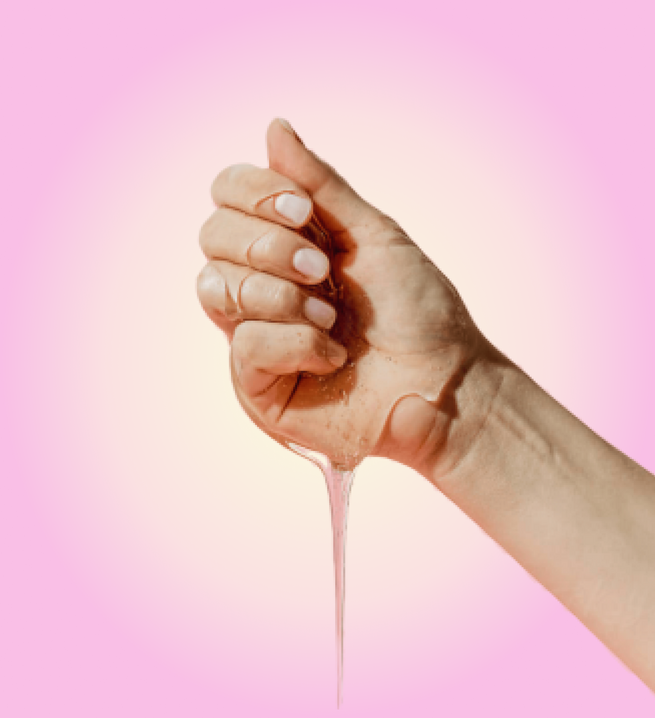
What’s the Best Kind of Lube for the Vagina?
Basically, the best kind of lube for the vagina is whatever kind of lube...Read more -

Is It Normal to Not Orgasm From Penetrative Sex?
It is very normal to not orgasm during penetrative sex. Although vaginal orgasms are...Read more -

Cranberry Juice for UTIS?
Cranberry juice, particularly cranberry cocktail, will not help your UTI. Only pure cranberry extract...Read more -

What Is Trichomoniasis?
Trichomoniasis (trich) is a common sexually transmitted infection caused by a parasite. Symptoms include...Read more -

-
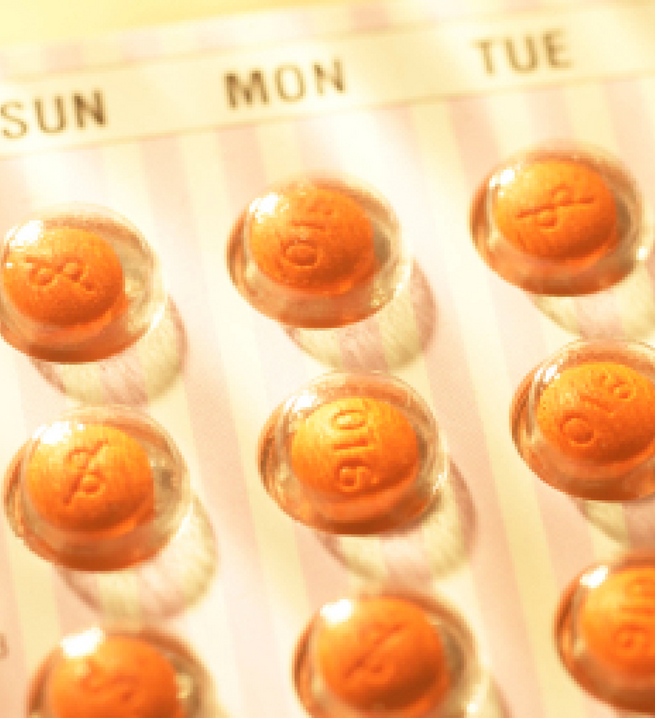
What Are the Risks of Going on Birth Control?
Birth control can be awesome for preventing pregnancy, regulating periods, and treating acne. However,...Read more -
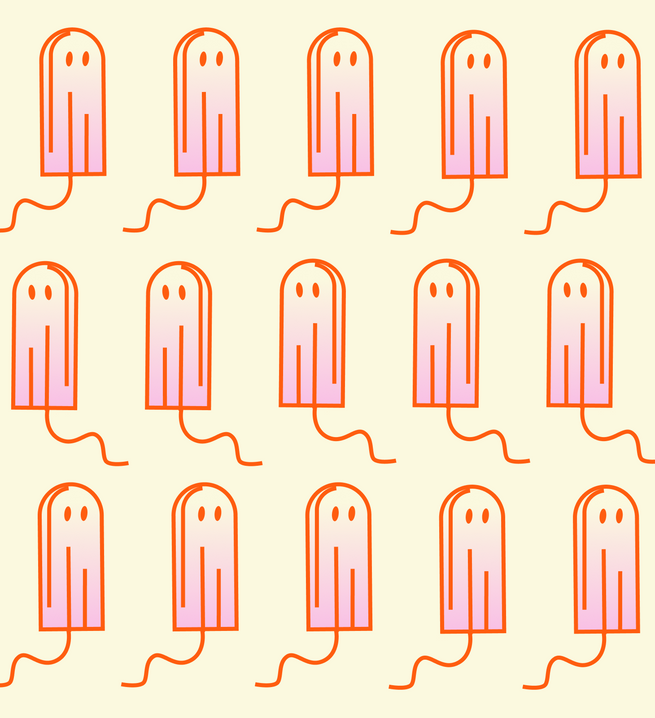
How Can I Prevent TSS?
Toxic shock syndrome (TSS) is a condition caused by exposure to certain toxin-producing bacteria...Read more -

Why Does My Vagina Smell Like Fish?
A fishy smelling vagina usually indicates bacterial vaginosis (BV). This is an extremely common...Read more -
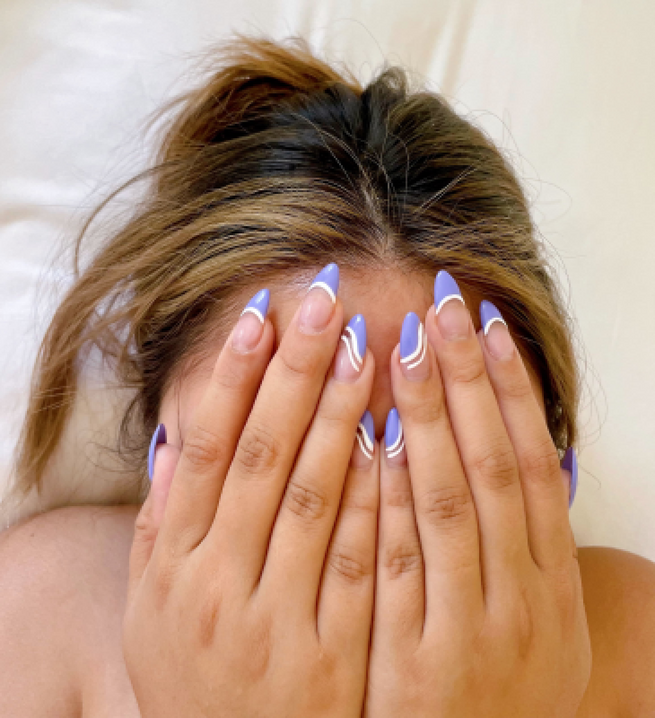
Is It Normal to Feel Depressed Before My Period?
It is normal to experience mood swings throughout your menstrual cycle, but if you...Read more -

Relieve UTI Pain at Night
UTI relief, fast! Waking up in the middle of the night with a UTI...Read more -

Can Guys Sense if You’re Ovulating?
There’s inconclusive evidence as to whether men can tell when women are ovulating. During...Read more -

Can you treat a UTI without antibiotics?
Exploring other UTI treatment options Antibiotics are an effective method for treating urinary tract...Read more -
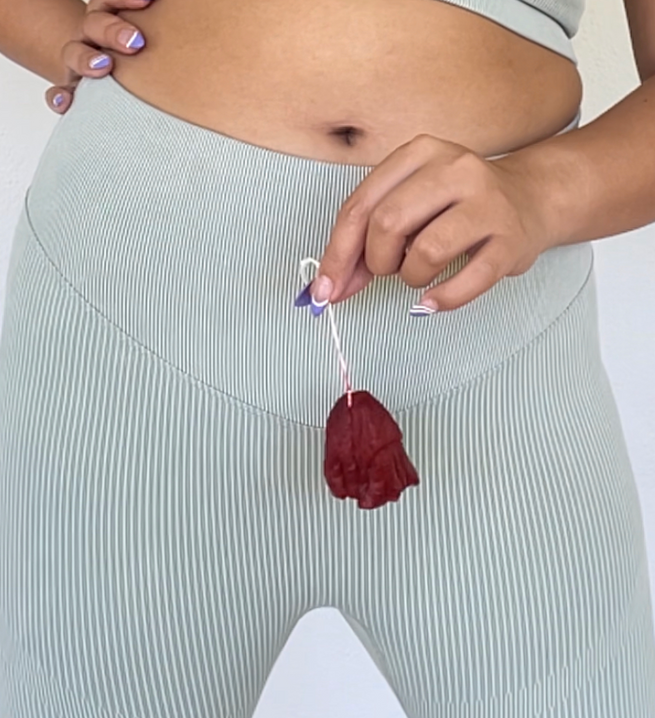
Why Are My Periods So Heavy?
If you have to change your pad or tampon after less than two hours...Read more -

Is Sex While Pregnant Bad for the Baby?
It's biology's way of helping you bond with your partner before the chaos of...Read more -

Can Condoms Help Prevent Vaginal Infections?
Many studies have shown that using a condom during sex decreases your risk of...Read more -

Cranberry Juice for UTIs?
“UTIs are very common.” Lots of women struggle with them and no one needs...Read more -

What Is a UTI?
A urinary tract infection is an infection of your urinary system, which can include...Read more -

Are Thongs Okay to Wear if I’m UTI-Prone?
If you’re UTI-prone you can totally still wear thongs, as long as they are...Read more -

Does My Dog Know When I’m on My Period?
Your dog can smell the difference in odor and hormone levels when you’re on...Read more -

Why Is My Vagina Fishy?
Well, well, well, did I stumble into a fish market or is that just...Read more -
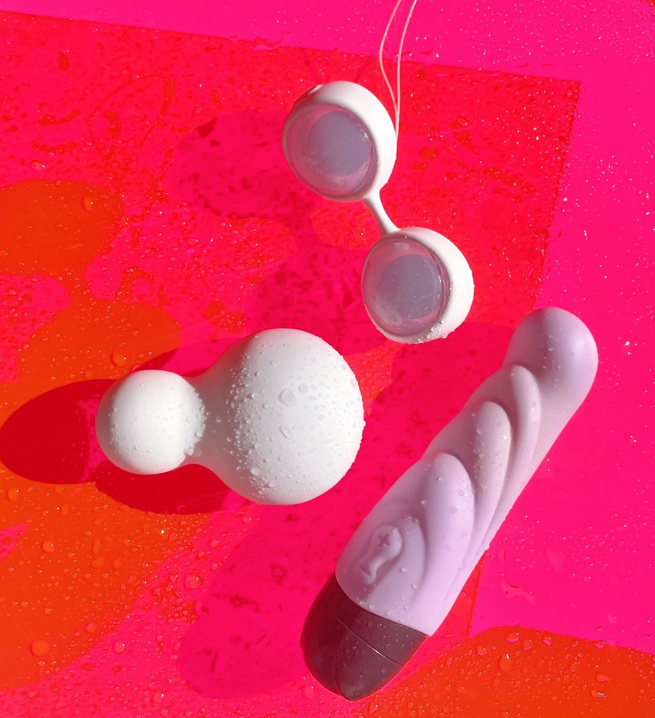
How Do I Properly Wash Sex Toys?
Most sex toys made of hard plastic, silicon, stainless steel, and glass can be...Read more -

Can I Have Sex With a Vaginal Infection?
Having sex while you have a vaginal infection isn’t recommended. Not only can it...Read more -

The State of Sex
Overall, the state of sex education, at least on an institutional level, doesn’t feel...Read more -
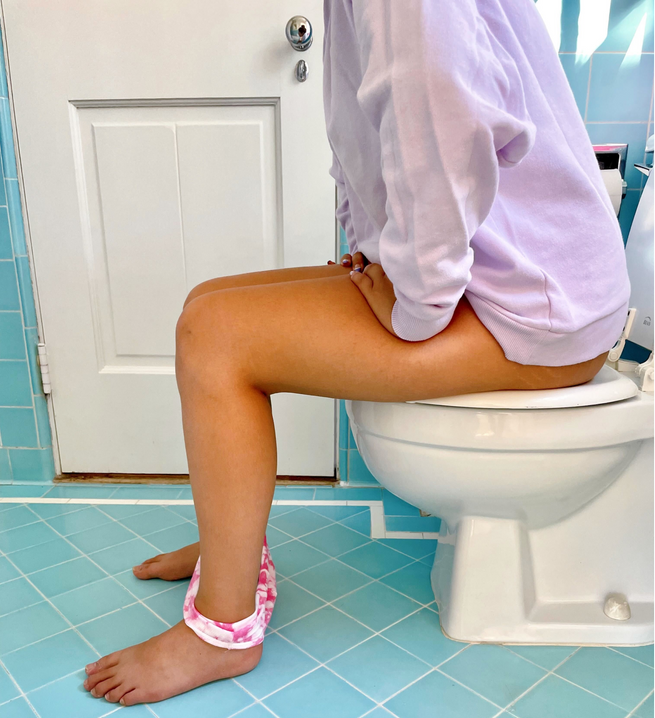
Why Do I Get Constipated Before My Period?
It’s totally normal for your stomach to be off during your period. But if it feels...Read more



